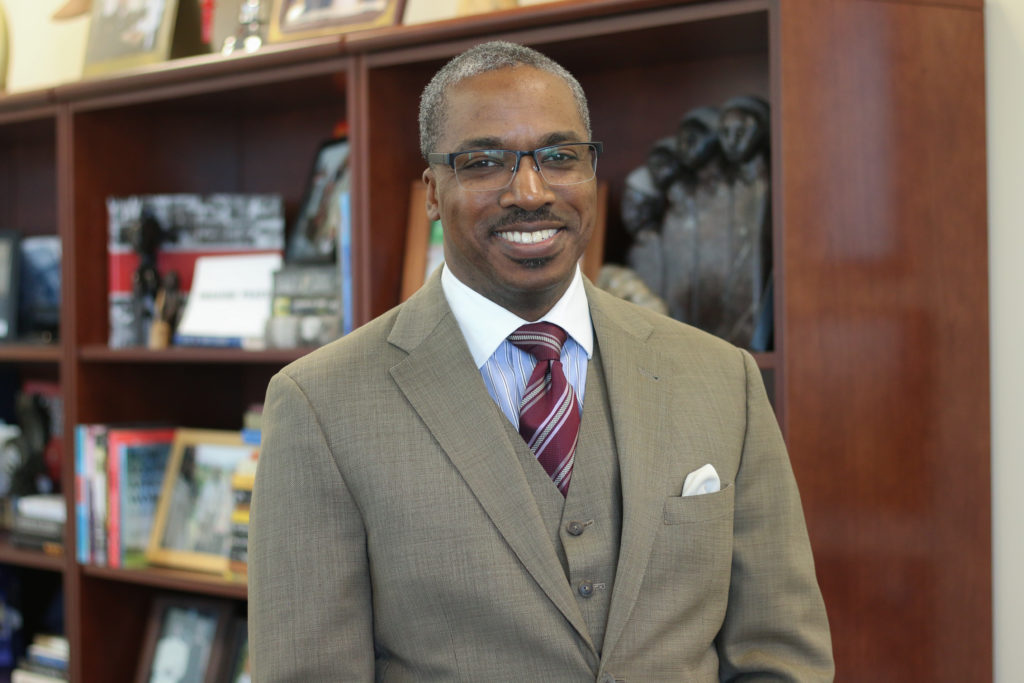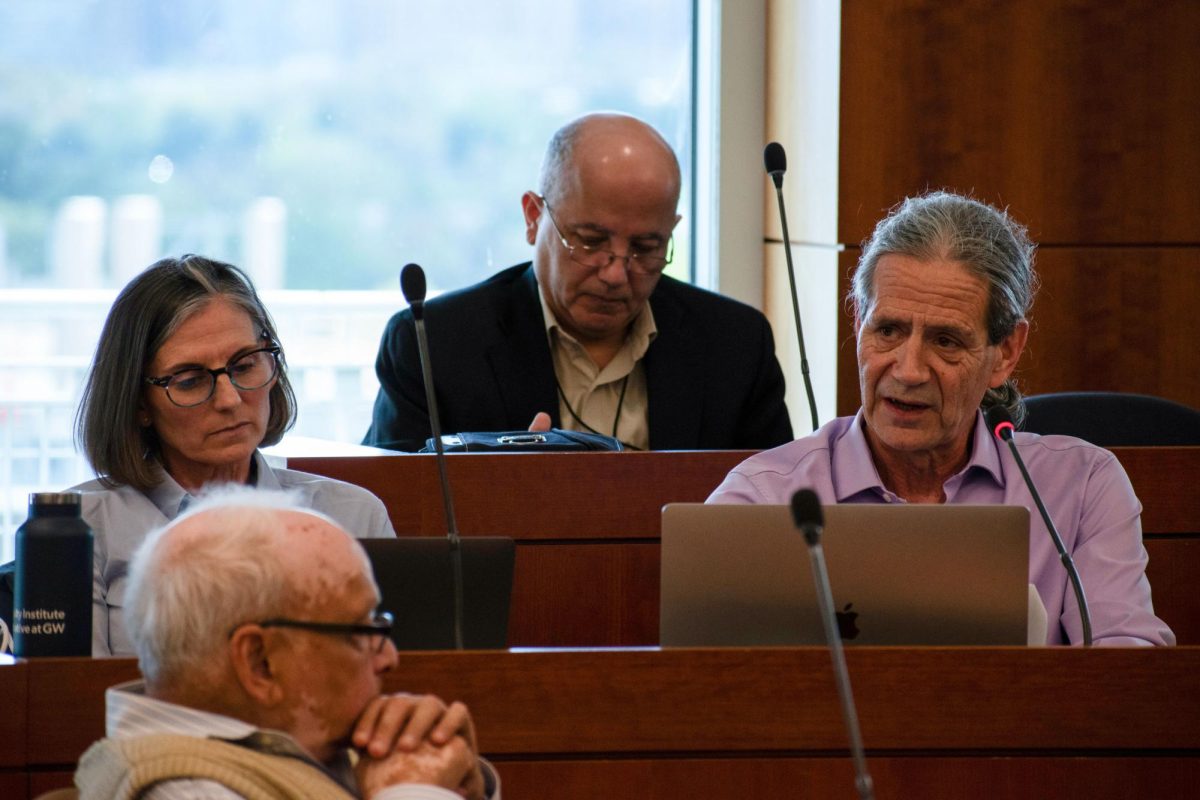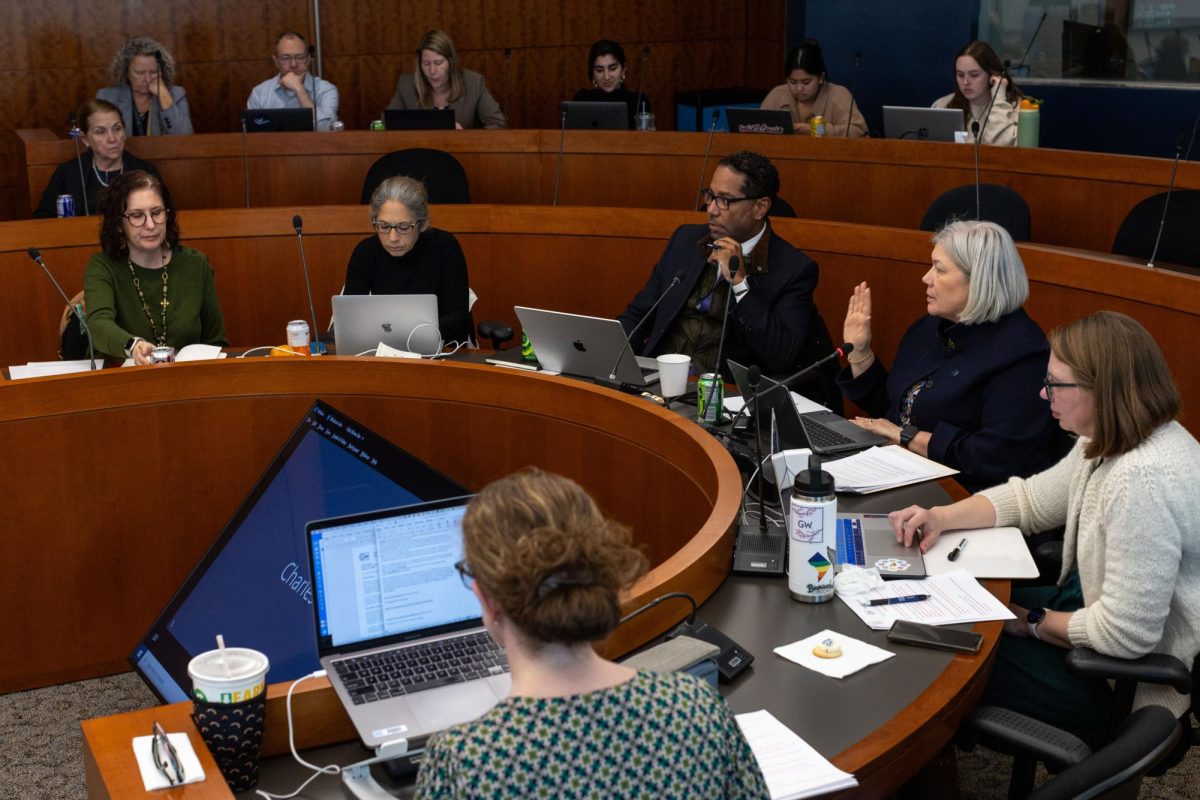Elliott School of International Affairs officials released a plan to promote diversity in the school which recommends establishing a school-wide diversity symposium.
The new plan contains four main goals to advance diversity efforts in the school: building a supportive community, growing the number of minority students, increasing the number of resources devoted to diversity efforts and developing a communications plan. Officials said one of the last goals to develop a communications plan was added based on feedback from community members who wanted more transparency and engagement about diversity efforts.
Jonathan Walker, the Elliott School’s assistant dean for student services, diversity and inclusion, said members of the Elliott School’s Council on Diversity and Inclusion – which is composed of students, faculty and staff in the school – crafted this year’s plan.
He said officials are in the preliminary planning stages so far for two points from this year’s plan, a planned “diverse perspectives in international affairs” speaker series and a school-wide diversity summit. Walker said the council will collaborate with a recently-hired diversity program manager, Kylie Stamm, to develop the series.
“The planning process will include the creation of thoughtful program learning outcomes, establishing a programmatic budget and strategic planning for community engagement,” he said in an email.
Walker said officials will provide more details about the series in the next few months. He said the school-wide diversity summit will “build on the knowledge and discussions” from the University-wide summit held last month.
The plan’s other subgoals include restructuring the school’s diversity and inclusion council to add more student representation, engaging in community outreach with ethnically and socioeconomically diverse K-12 schools and establishing partnerships with historically black colleges and universities and Hispanic-serving institutions.
He said officials will work with leaders of minority-serving institutions because of “their direct focus on serving students of underrepresented backgrounds.”
“MSIs are one of many natural partners for us in our specific goal of diversifying our students, faculty and staff,” Walker said.
He said Stamm, the diversity program manager, will take on three main responsibilities: to manage existing and future diversity programming, develop diversity- and inclusion-focused education and training initiatives for students, faculty and staff and support “strategic planning” for ongoing initiatives in the Elliott School.
Officials completed more than 10 goals from last year’s plan, like holding an unconscious bias training and gender sensitivity workshop for faculty and staff and including a question on course evaluations related to diversity and inclusion, according to the school’s website.
Jennifer Brinkerhoff, a professor of international affairs and the faculty co-chair of the diversity council, said the action plan is intended to fit into the broader trend of improving diversity and inclusion within the Elliott School and the University as a whole.
“An action plan is a tactic in our broader strategy that is for the longer haul, but it is a tactic because it enables us to pivot on a shorter term basis to changing circumstances, challenges and opportunities that may emerge,” she said.
Brinkerhoff said she hopes to implement several portions of the plan by the end of the school year. She added that the proposed diversity speaker series will demonstrate a “regular public visibility of diversity and inclusion that provides those messages” and confirms the school’s commitment to diversity.
Brinkerhoff said the council is divided into working groups on hiring and communications, but council members aim to create more groups, like one to specifically handle the speaker series. She said the council plans to invite Elliott School community members outside of the council to the working groups to collect more perspectives on the plan’s initiatives.
Brinkerhoff said another goal of the plan is to create a newsletter highlighting the school’s accomplishments in diversity and inclusion.
“We want to make sure that everything that we do relating to diversity and inclusion is integrated into the school, into the school’s regular activities and programs,” she said.
Brinkerhoff said council members want to work closely with the Office of the Vice Provost for Diversity, Equity and Community Engagement and with Jordan West, the director of diversity and inclusion education, to promote community outreach.
“I want us to benefit from and support the expertise and activities around diversity and inclusion for the University as a whole, and part of that means also showing how much energy and commitment we have behind this agenda and that we are ready to be leaders in this arena,” Brinkerhoff said.
Alvin Young, a second-year graduate student pursuing a masters in international affairs and a member of the council, said he aims to advocate for the issues of graduate students in the Elliott School surrounding diversity and inclusion as a council member. Almost 50 percent of graduate students in the Elliott School are racial minorities, according to institutional data.
“We want to make sure that all students at the Elliott School, graduate and undergraduate, feel like they’re in a space where they are welcomed in and where they can contribute in, where they can facilitate their personal and professional development,” he said.
He said the members of the council need to have a “realistic expectation” of how much time they have to complete all of the plan’s goals. He said he aims to ensure graduate students feel more represented in course syllabi through assigning readings by authors with a variety of racial and ethnic backgrounds.
He added that the school’s diversity plan is designed to attract students to the University by strengthening the school’s support for diversity and inclusion efforts and boosting representation in GW at large.
“That kind of programming is really important showing people in the broader community why GW is the place to come to and the best school that’s working toward a more inclusive place, all those things are extremely important for professional development,” he said.








